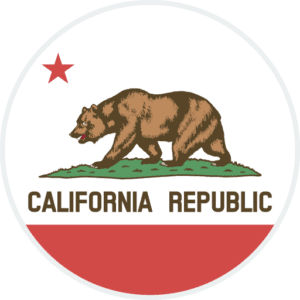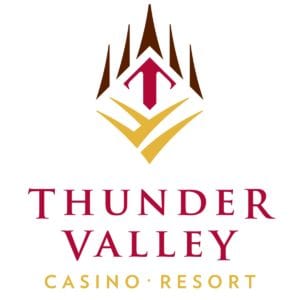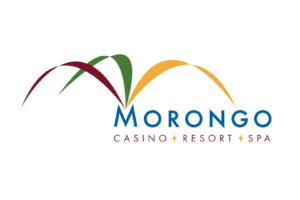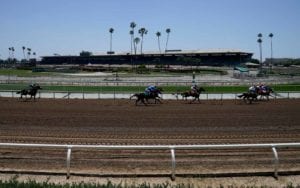California Online Casinos

California is a state with an incredibly diverse population, a geography largely unmatched by any other place in the US, and a unique status within the American experience. The state is the largest in terms of population by a wide margin — more than 39.5 million people reside in California and equates to almost 12% of the entire US population. In terms of gambling, California is home to the third-most casinos, all operated by tribes.
So, to put it mildly, there is quite a bit of interest in California as a gambling destination. No other state is as big of a target for online gambling companies as the Golden State. However, the current state of things in California sees it without online casinos or any form of online gambling.
Regardless, Playin USA has all the latest details about California online casinos — or the lack thereof — and gambling in general in the Golden State. Read on for all the latest about online casinos and gambling in California.
Play online slots or casino games in California
Are online casinos legal in California?
No. There are no legal real money online casinos in California at this time. Currently, all of the focus for legal changes to online gambling focus only on sports betting. The state’s voters will decide whether to legalize that in November of 2022. Even if the voters do approve that, it could still be sometime before a similar push surfaces to legalize real-money online casinos and online poker sites.
Sweepstakes and social casinos
The only types of online casino games you can play legally in California are the sweepstakes and social casinos that we referenced above. The biggest and best options social casinos are Chumba Casino and Luckyland Slots. Funzpoints is an established sweepstakes casino and you can find information on any new sweeps casinos here. All three of these offer a variety of online games, including slots, blackjack, roulette and video poker. They are similar but not the same as the games you might find at California retail casinos.
One last thing to mention is that Global Poker, despite its name and primary mission, also maintains a few slot titles and table games for you to try. Even if you are not a poker player, there may be a reason to check out this site’s offering.
Can you gamble online in California?
For the most part, no. As we indicated in the introduction, the legalization of anything as far-reaching as online casinos, online poker, or online sports betting is a complicated process, and that’s under the best of conditions. With regard to gambling, four different groups of stakeholders each have their agendas and demands — more on this later. However, the bottom line is that any kind of broad-spectrum online gambling remains off the table in California. The bills currently under consideration with the California Legislature mostly deal with slight amendments and adjustments to existing law.
There are a few exceptions to online gambling in California, though.
- Sweepstakes and social casinos
- Daily fantasy sports, such as FanDuel and Fliff
- Online pari-mutuel horse betting sites, such as TVG
As far as DFS goes, industry leaders, like DraftKings and FanDuel, are available for service in the Golden State. But DFS itself is in legal limbo in California, where it is neither explicitly legal. California could come crashing down on DFS, but it’s quite unlikely.
Will California regulate online gambling in the future?
This seemingly straightforward question is a tough one to answer. The best that we can say with any confidence is that if California is going to regulate online gambling in the future, it won’t be for many years, and it will probably be only sports betting. We’d love to be wrong about this prediction, but the whole state of affairs is nothing short of a mess.
A sports betting bill crashed into the mountain in 2020, and another initiative pushed by the tribes was on the November 2022 ballot that failed to pass again. However, that second initiative didn’t even provide for online sportsbooks and recent discussions put California online sports betting on hold until at least 2025. The legalization of online casinos or poker is an even more contentious issue than sports betting if you can believe it.
Why online gambling is complicated in California
One of the main hurdles to any kind of meaningful online casino movement in CA is four different stakeholders in the matter. Each one of these groups has very different motivations, desires, and demands when it comes to legal online casinos and the like in California. The four groups in question are California’s cardrooms, the tribal interests, the racetracks and the lottery/state itself.
For some of these groups, one immovable condition is that some of the other groups are not permitted to join in online gambling. The tribes have never recognized the cardrooms as legitimate under the law and continue to argue, in court and with the state, that they should be shut down permanently. The last thing the tribes want is to see them included in new gambling expansions, which would legitimize them further in the state.
Needless to say, the cardrooms don’t find this argument particularly compelling. Cardrooms in California are as endemic to the area as is the view of the Pacific Ocean and Napa Valley wine. They see the tribes’ actions as a move toward monopoly and have fought tooth and nail for their right to exist in the courts. So far, they’ve proven rather successful, but the fight is nowhere near a conclusion. Any type of gambling expansion only serves to heighten the bickering between the two groups.
Meanwhile, California racetracks would like to be involved with online gambling, too, particularly when sports betting is under consideration. The racetracks, who have quite a bit of political clout, argue that sports betting could give their facilities a much-needed shot in the arm. The tracks like the venerable Santa Anita Park support the tribal initiative for retail sports betting as it would allow for sportsbooks at their venues.
Finally, it is impossible to count out the possibility that the California Lottery might throw its hat into the ring with online gambling. Lotteries are often intimately involved with the expansion of gaming in states. Since the lottery is an extension of the state itself, it makes sense that the state might want to keep everything in-house. Facing growing budget deficits, California lawmakers are on the lookout for any new sources of tax revenue they can find.
So, the short answer is that California is probably an underdog to legalize online casinos or any form of online gambling in the near future. There are simply too many moving parts to that kind of outcome to feel confident that it is imminent.
Legal online gambling vs. offshore sites
Any quick Google search for “California online casinos” or something similar brings up listings for tons of sites that accept players in California. Those sites that you find are not legal to play in California, and in fact, they don’t even have their servers or headquarters in the United States at all. Instead, they are usually based offshore. Offshore sites that accept California players come with several concerns and risks.
- Unregulated: You do not have the legal recourses available to you that you would normally enjoy with legal US sites. You might not have the same number of options for getting a resolution that you like. The court systems governing these sites may take a far different stance than the ones you’d find here, and that’s assuming that they would have any standing or jurisdiction at all.
- Security and Safety: In that sense, the safety of your personal information (and the security of your banking details) are suspect.
- Trust: Finally, the licensing procedures that these sites have to undergo is not terribly clear, either in terms of its rigor or whether they even have a license. You cannot be sure who these companies are, their record, and how safe they are.
So, in summary, it’s just not worth the risk. There are enough live options and sweepstakes sites to keep you going in California, so don’t do anything foolish and send your info overseas.
Who regulates gambling in California?
The California Gambling Control Commission oversees all gambling in the State of California. Unusually, the CGCC even keeps track of the numerous tribal compacts in the state — something we rarely see a gaming commission do. For as much of a sludgy mess as the state’s political system is, the CGCC seems unusually on top of things and has clear links to any relevant information for providers and the public alike. Were online gambling to come to California, its oversight would undoubtedly fall to the CGCC.
What is the legal gambling age in California?
California gambling locations are a mixed bag in terms of their prescribed gambling ages. Cardrooms in the state require all players to be 21, with no exceptions. The casinos, racetracks, and lottery games in the state only require a player to be 18.
However, some of the casinos will still require patrons to be 21 because they are serving alcohol on the premises. So, if you are planning to visit a gambling facility in California and happen to be between the ages of 18 and 21, you might want to call ahead and make sure that you can enter. If you are under 21, then you can’t go. If you’re over 21, then it shouldn’t matter, but bring your ID just in case.
Types of legal gambling in California
California’s legal gambling options are both diverse and, in their own way, strangely limited. For the reasons mentioned above, there may be no other state where the different segments of the industry are more uncomfortable bedfellows. So, although you can engage in the different types of gambling listed below in California, don’t expect to do so at the same place most of the time.
- Slots
- Card-based table games
- Pari-mutuel betting on horse races
- Live poker
- Lottery games
- Home-based poker games
- Charitable gaming, including bingo
Are there casinos in California?
God, yes. There are no fewer than 66 casinos operating in California, according to the California Gambling Control Commission. The 66 locations owned by 60-plus tribes are the third-most of any state, behind Nevada and (shockingly) Oklahoma. All of these casino locations in California are tribal — there are no commercial casinos in the state.
So, instead of trying to list every single casino in the state, we decided to list the biggest and brightest of the pack. Below, you will find blurbs about the five top casinos in California. Please note that there are several casinos that could have made this list. We ended up using a combination of gaming square footage, number of slot machines and tables, and any extra facilities to inform our selection. If your favorite casino isn’t listed here, it might have just missed the cut.
Pechanga Resort Casino
- Address: 45000 Pechanga Parkway, Temecula, CA 92592
- Location: Southern California, between Los Angeles and San Diego
- Phone: 1-888-PECHANGA
- Operator/Owner: Pechanga Band of Luiseno Mission Indians of the Pechanga Reservation
- Live Poker? Y
No discussion of California casinos can start anywhere other than the Pechanga in Temecula. The colossal casino location is massive by any standard. It features 188,000 square feet of gaming space, with more than 5,000 slot machines, 158 table games, a 38-table poker room, and a 700-seat bingo venue. There are also 14 restaurants and bars and a full-service 1,100-room hotel waiting to accommodate you. Everything at Pechanga is top-notch.
San Manuel Casino
- Address: 777 San Manuel Blvd. Highland, CA 92346
- Location: Southern California, east of Los Angeles
- Phone: 1-800-359-2464
- Operator/Owner: San Manuel Band of Mission Indians
- Live Poker? N
If Pechanga is first on the list, San Manuel Casino has to be second. The massive casino just east of San Bernardino features in excess of 5,000 slots, more than 130 table games, seven restaurants, and eight bars. The only dings that put Pechanga over San Manuel are the fact that San Manuel is still constructing its onsite hotel and has no live poker. The onsite hotel is due to open its doors sometime in the next year or so, though, and advertises an expanded casino space to boot.
Thunder Valley Casino Resort
- Address: 1200 Athens Ave, Lincoln, CA 95648
- Location: Northern California, northeast of Sacramento
- Phone: 877-468-8777
- Operator/Owner: United Auburn Indian Community of the Auburn Rancheria of California
- Live Poker? Y
Thunder Valley Casino Resort is an enormous full-service casino venue and the first in northern California on our list. Visitors to the property 27 miles northeast of downtown Sacramento will find more than 3,000 slot games, more than 105 table games, a poker room, and a bingo hall. There are multiple restaurants and bars, a buffet, and a food court if you need provisions. The site also has a top-notch hotel and a relaxation spa.
Cache Creek Casino Resort
- Address: 14455 CA-16, Brooks, CA 95606
- Location: Northern California, northwest of Sacramento
- Phone: 530-796-3118
- Operator/Owner: Yocha Dehe Wintun Nation
- Live Poker? N
Cache Creek Casino Resort is 50 miles northwest of Sacramento and roughly 11 miles northeast of Lake Berryessa as the crow flies. Cache Creek has more than 2,700 slots, 120 table games, and a poker room onsite. There are also nine restaurants, a full-service hotel and spa, and a 700-seat entertainment venue for concerts and shows. In addition, the property contains an 18-hole championship golf course, which features a Brad Bell design that expertly takes advantage of the beautiful setting.
Morongo Casino Resort & Spa
- Address: 49020 Seminole Dr, Cabazon, CA 92230
- Location: Southern California, northwest of Palm Springs
- Phone: 951-849-3080
- Operator/Owner: Morongo Band of Cahuilla Mission Indians
- Live Poker? Y
Of the top casinos in California, Morongo Casino Resort & Spa is probably the easiest to find. If you’re in Los Angeles, the directions are… head east on I-10. That’s it. It’ll be on your left. However, convenience and ease of navigation are not what puts Morongo on this list. The 4,000 slots, more than 60 table games, and poker room spread across nearly 200,000 square feet does. There are also eight restaurants, a 310-room hotel, and a beautiful spa to relax and enjoy yourself, albeit in the Colorado Desert.
Tribal gaming interests in California
There are no casinos in California that are operated by MGM Resorts International or Caesars Entertainment. All casinos in California are tribally owned and operated. In fact, there are more than 100 federally recognized tribes in California, even if not all of them offer casino gambling.
However, one thing that deserves discussion is the political influence that the tribes have regarding gambling in California. Under each tribe’s compact with the state is the following language (or something very similar):
“The exclusive rights that Indian tribes in California, including the Tribe, will enjoy under this Compact create a unique opportunity for the Tribe to operate its Gaming Facility in an economic environment free of competition from the Class III gaming referred to in Section 4.0 of this Compact on non-Indian lands in California.”
In other words, for the most part, the tribes have the exclusive right to offer gambling in California. The Section 4.0 referenced further clarifies that the exclusivity pertains to gambling devices (slots) and “banking or percentage” card games. So, there’s no debate about whether you can find slots outside of tribal casinos in California — you can’t, and it’s quite clear.
Cardrooms vs. tribal casinos
Banked or percentage card games are normal table games that you’d see in places like Las Vegas or Atlantic City, NJ, where a casino representative deals the games and serves as the banker or rakes each game. However, entrepreneurs in California wondered if there was a way to offer unbanked card games, where players play against each other, rather than the house. Thus, the cardroom scene in California was born, where you can play blackjack and other card games against other players. The dealer button rotates around the table, and, at times, you can enjoy the same odds that Las Vegas dealers usually have.
It was a novel idea, and tribal leaders gave their blessings to it with a hearty thumbs up. Just kidding! Native American tribes in California have never stopped attempting to have the cardrooms shut down, claiming that their right to exclusivity has been violated by the very existence of places like the
Commerce and Bay 101. Unfortunately, the cardrooms have been around long enough to become established and generate their own political power, so it doesn’t look like they are going away soon.
The tribes’ ire over the cardrooms even extends to lawmakers and legislation. Their fear — that a mention of the rooms would give them an official sanction — is not without merit. However, it also illustrates why any kind of online gambling expansion in California, be it online casinos, poker, or sports betting, is such a contentious dogfight and why nothing ever seems to happen.
California horse racing
California has a history with horse racing that would be the envy of any state. The Golden State has some of the top racetracks in the country outside of Kentucky, Maryland, and New York. Of the four permanent racing facilities in the state, three host or have hosted Grade I thoroughbred races in recent years. One of them, Santa Anita Park, hosts the Santa Anita Handicap, which is consistently considered one of the top 10 prestigious horse races in all of racing in the US. The four permanent facilities are:
- Del Mar Racetrack
- Golden Gate Fields
- Los Alamitos
- Santa Anita Park
Are there online horse betting sites in California?
California also allows residents and visitors to bet on horse races online. Several sites are authorized to offer advanced deposit wagering (fancy talk for online horse betting) in the state, in fact. We already mentioned one of the best options in TVG, but there are plenty of options you can use. Here they are:
- BetAmerica
- B Racing
- NYRA
- Offtrackbetting.com
- TwinSpires
- Watch and Wager
- XpressBet
History of gambling in California
We can reliably plot the history of gambling in California at least as far back as its statehood. Anecdotal accounts tell of hundreds of cardrooms operating in saloons throughout the territory. As it stands, there are four main types of gambling that you can find in California right now: tribal casinos, cardrooms, racetracks, and the California Lottery.
With all these different activities, it’s important to take stock of how we arrived at this point with California and gambling. So, here are some of the key years for the advancement of gambling in the Golden State:
1872
The first big move for gambling in California occurred in 1872. The young state differentiates gambling games as either banked or controlled games and bans the former. So, purely casino-run games are no longer allowed, but player-led poker games are perfectly acceptable under state law. This system continues to function to this day and underlies the operations at Bay 101, Hustler Casino, and Hawaiian Gardens, to name a few. The only significant change comes in the early 1980s, when other unbanked games, such as pai gow poker and blackjack, debut in the cardrooms.
1933
California expands its gambling profile dramatically when it legalizes pari-mutuel wagering on horse races. The legalization is roughly concurrent with the debut of the venerable Santa Anita Park in 1934. The Los Angeles-area track hosts the first Santa Anita Handicap with a winner-take-all prize of $100,000 — equivalent to nearly $2 million today. The prize is especially relevant due to the current events of the time — the US is deeply into the Great Depression, and the legalization is one of the state government’s initiatives to generate badly-needed tax revenue. Ironically, the bill that legalizes horse racing is called Proposition 5, a name that would recur with another piece of gambling legislation decades later.
1988
1988 proves to be a banner year for gambling in California thanks to a single piece of federal legislation. The Indian Gaming Regulatory Act makes it legal for federally recognized Native American tribes to negotiate compacts with their respective state governments to offer casino gambling on tribal lands. The tribes in California are already offering bingo on their reservations, but given that there are 109 federally recognized tribes that call the Golden State home, there is plenty of interest in expansion. However, it would be another 10 years before the tribes could finally come to an agreement with the state on a compact.
1998
After arguing and spending millions of dollars over the course of a decade, the tribal groups in California finally succeed in having the question about casino gaming on their lands put onto the ballot. The Tribal-State Gaming Compacts Initiative, or Prop 5, passes by a 2-to-1 margin and permits the introduction of slot machines and banked casino games on reservation lands. Though Prop 5 was overturned shortly afterward on a legal technicality, a subsequent proposition in 2000 reaffirms the tribes’ rights to offer these types of games. Furthermore, the compacts include language that guarantees the tribes the exclusive right to casino gambling in the state. Due to this legislation, there are now more than 60 active casinos operating in California at present.
2018
The US Supreme Court decision to overturn the federal ban on sports betting and remand the decision to each state crystallizes the animosity and enmity that exists between the tribes and the cardrooms in California. The newfound freedom to offer wagering on sports also causes both the racetracks and the state lottery to throw their respective hats into the ring. Numerous efforts to legalize sports betting in California have been met with fierce resistance by one or more of these groups due to the fact that the proposals have invariably excluded the tribes or the cardrooms. The most prominent effort, a tribal initiative, will be on the November 2022 ballot after it finally achieved enough signatures.
Responsible Gambling in CA
In states like California, where there
are hundreds of legal gambling outlets spread throughout the land, it is imperative that responsible gambling resources be available. In that vein, California has a large and developed state system for helping sufferers get the aid they need.
The California Department of Public Health’s Office of Problem Gambling coordinates all of the responsible gambling efforts in the Golden State, and the tip of that particular spear is the California Problem Gambling Helpline. If you call 1-800-GAMBLER, you will be connected with a trained counselor who can assist you in finding options to treat your problem gambling. The service is free and available 24 hours a day, 7 days a week.
If you prefer, you can also text the word SUPPORT to 53342 to be connected to one of these assisting professionals. You can also chat online with a counselor in California here. If you happen to be between the ages of 12 and 24, you can also try the California Youth Crisis Line at 1-800-843-5200. This line is more generalized for troubles that young people can have, but gambling problems are certainly covered.
Another option that you can pursue are the various support groups active in the state. Gamblers Anonymous is the best-known of these organizations. These groups can succeed where formal therapy and assistance can fail because they are composed of other gambling-addicted peers. You can find phone numbers for GA groups in California here. If you want to join a similar community online, you can explore GamTalk, which offers the same service from the comfort of the internet.
California gambling self-exclusion list
Finally, it is sometimes necessary to invoke the nuclear option to solve a problem. For problem gambling, that option is the self-exclusion list. Self-exclusion is a voluntary step that bars you from entering any gambling location covered by the list’s jurisdiction. In theory, if California online casinos and poker sites are legalized, the same self-exclusion rules would apply.
California’s self-exclusion list offers the problem gambler either temporary (1 year) or permanent denial of entry and service to its casinos, cardrooms, racetracks, and other gambling facilities. It is possible to have yourself removed from the list after a time. Self-exclusion is only possible if it is initiated by the problem gambler themselves. Family members and friends, regardless of how good their intentions are, cannot place someone into the self-exclusion program.
California also maintains a more limited version of self-exclusion with its self-restriction program. On this list, players can voluntarily have themselves banned from individual properties, rather than every gambling facility in the state. This option might be more appropriate if you are having trouble staying out of the casino next door to your house.
Self-exclusion lists have to be maintained by the state, in most cases, because they bear penalties of law with them. Any person on the list who enters a gambling facility commits criminal trespassing and can be arrested, fined, and jailed for the offense. In addition, California law requires each venue to take steps to prevent you from getting into their gaming floors. So, everyone involved with self-exclusion has a vested interest to keep you from playing.










